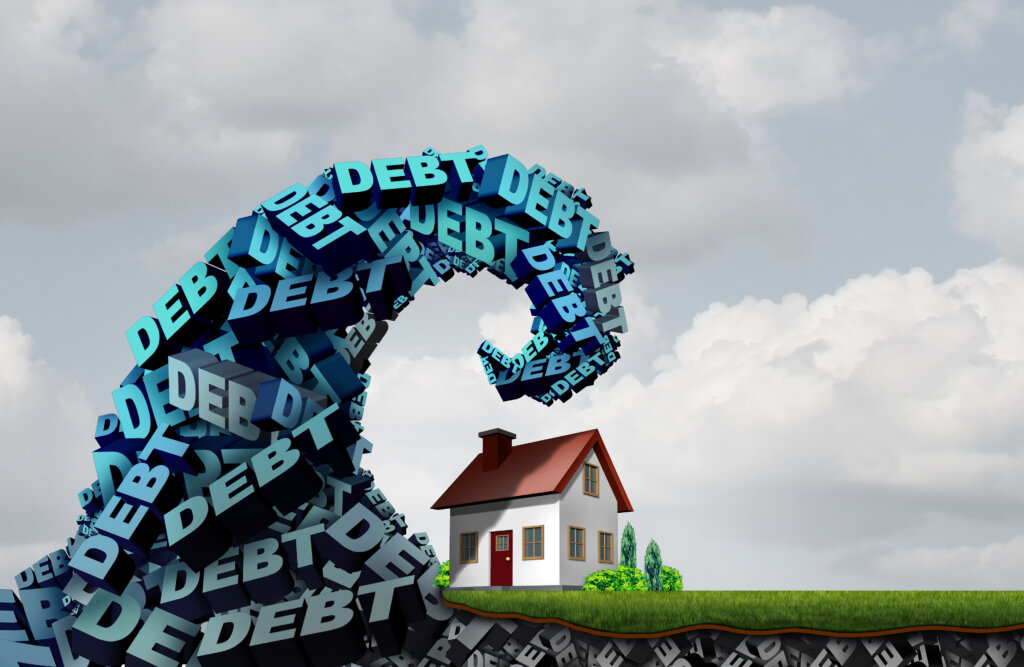Introduction: Navigating the Process of Selling After Bankruptcy in Tamarac, FL
Selling a house for cash after filing for bankruptcy may seem like a daunting task, but it’s a viable option for many homeowners looking to quickly resolve their financial challenges. In Tamarac, FL, as in other parts of the country, homeowners who have filed for bankruptcy often face unique circumstances when trying to sell their property. Understanding the process, the benefits of selling for cash, and the challenges you may encounter along the way is crucial to making the best decision.
Bankruptcy can significantly impact your ability to sell your home, but selling for cash can offer a quick and straightforward solution. Whether you’re in Chapter 7 or Chapter 13 bankruptcy, or whether your house is facing foreclosure, a cash sale could help you avoid additional financial complications. In this article, we’ll walk you through the key considerations, the cash sale process, and everything you need to know about selling your house for cash after bankruptcy in Tamarac, FL.
Understanding Bankruptcy and Its Impact on Your Home
What is Bankruptcy?

Bankruptcy is a legal process that allows individuals or businesses to eliminate or restructure their debts under the protection of the federal bankruptcy court. In the United States, there are two common types of personal bankruptcy:
- Chapter 7 Bankruptcy: Known as “liquidation” bankruptcy, Chapter 7 involves the sale of non-exempt assets to pay creditors. After the assets are liquidated, most remaining unsecured debts are discharged, meaning you are no longer responsible for them.
- Chapter 13 Bankruptcy: This is a “reorganization” bankruptcy that allows individuals with regular income to develop a repayment plan to pay back all or part of their debts over three to five years. After the repayment period, any remaining eligible debts are discharged. For more information on Chapter 13, see Nolo’s Guide to Chapter 13 Bankruptcy.
How Bankruptcy Affects Homeownership
Filing for bankruptcy can significantly impact your homeownership status. Some of the main effects include:
- Automatic Stay: Once you file for bankruptcy, an automatic stay goes into effect, which temporarily halts any collection efforts, including foreclosure proceedings. This can provide homeowners with immediate relief by stopping lenders from seizing the home.
- Foreclosure Risks: While bankruptcy can delay foreclosure, it does not eliminate it entirely. In Chapter 7, your home may be sold to pay creditors if you don’t have enough exemptions to protect it. In Chapter 13, you may be able to keep your home if you catch up on overdue mortgage payments as part of your repayment plan.
- Impact on Credit: Bankruptcy will remain on your credit report for several years (7 years for Chapter 13 and 10 years for Chapter 7), which can affect your ability to qualify for loans and mortgages in the future. For more on the credit impact of bankruptcy, check out Experian’s guide on how bankruptcy affects your credit.
Can You Sell Your House After Filing for Bankruptcy?
Selling During a Bankruptcy Proceeding
Many homeowners wonder if they can sell their house while in bankruptcy. The answer depends on the type of bankruptcy you’ve filed for:
- Chapter 7 Bankruptcy: Selling your house during a Chapter 7 bankruptcy can be complicated. If you have non-exempt equity in your home, the bankruptcy trustee may sell it to pay creditors. However, if your home is exempt or if the equity is protected by exemptions, you may be allowed to sell the property. The sale proceeds will be used to pay off your mortgage or debts.
- Chapter 13 Bankruptcy: If you’re in a Chapter 13 repayment plan, selling your house becomes more complex. The court will need to approve the sale, and the proceeds may need to be used to pay off outstanding debts or contribute to your repayment plan. Selling your home for cash in this situation could be beneficial because it may allow you to clear outstanding debts and avoid a lengthy repayment process.
How Bankruptcy Affects Property Value
If you’ve filed for bankruptcy, the value of your home may be impacted by several factors, including:
- Foreclosure Risk: If foreclosure proceedings are underway, the value of your home could be affected by how much time remains before the foreclosure sale. Cash buyers are often willing to purchase homes in foreclosure, but the value may be lower than a typical market sale.
- Liens and Outstanding Debts: If you owe money to creditors, there may be liens placed on your property, which can complicate the sale. A cash sale can help you avoid the complications of dealing with multiple creditors, but it’s essential to understand how liens will affect the sale process.
- Buyer Interest: After bankruptcy, some buyers may be hesitant to purchase a property that has been involved in financial distress. However, cash buyers are often more open to purchasing distressed properties, as they can close quickly without the need for financing.
Is Selling for Cash a Viable Option?
Selling for cash is often a viable option after bankruptcy for several reasons:
- Quick Closing: Cash sales can close in as little as a week, which is especially beneficial if you’re facing financial distress and need to sell quickly.
- Avoid Foreclosure: If you’re at risk of foreclosure, selling for cash can allow you to avoid a foreclosure sale, which can have long-lasting effects on your credit.
- No Repairs Required: Cash buyers typically purchase homes “as-is,” meaning you don’t have to invest time or money into repairs or upgrades.
- Less Paperwork: Cash sales often require less paperwork and fewer contingencies than traditional sales, making the process smoother and faster.
The Cash Sale Process After Bankruptcy in Tamarac
Step-by-Step: Selling Your House for Cash
Here’s a breakdown of the typical steps involved in selling your house for cash after filing for bankruptcy:
Step 1: Assessing Your Property’s Value
Before you can sell, you’ll need to determine the value of your property. A cash buyer may conduct their own assessment, but it’s helpful for you to have an understanding of your home’s market value, taking into account any foreclosure proceedings, liens, or damages.
Step 2: Getting Approval from the Bankruptcy Trustee (If Necessary)
In Chapter 7 and Chapter 13 bankruptcies, the trustee may need to approve the sale of your home, especially if it involves proceeds that will go toward paying off creditors. It’s important to consult with your bankruptcy attorney to ensure that the sale complies with bankruptcy laws.
Step 3: Accepting a Cash Offer
Once you’ve received a cash offer, carefully evaluate the terms. Cash buyers often make lower offers than traditional buyers, but the benefit is that the process is faster and less complicated.
Step 4: Closing the Sale and Handling Outstanding Debts
The proceeds from the sale will be used to pay off the mortgage and any outstanding debts. If you’re in Chapter 13, the trustee may apply the funds toward your repayment plan.
Key Benefits of Selling for Cash After Bankruptcy
Selling for cash after bankruptcy offers several key benefits:
- Speed and Convenience: Cash buyers can close the sale in as little as 7 to 14 days, which is much faster than a traditional sale. This is crucial if you need to resolve your financial situation quickly.
- As-Is Condition: Cash buyers are typically willing to purchase properties “as-is,” meaning you won’t need to make costly repairs or upgrades before the sale.
- No Financing Contingencies: Cash sales don’t rely on financing, so there’s no risk of a deal falling through due to financing issues.
- Avoid Foreclosure: A cash sale can help you avoid the negative consequences of foreclosure, which can stay on your credit report for years.
What to Consider Before Accepting a Cash Offer
Evaluating Offers: What to Look For
Before accepting a cash offer, consider the following:
- Proof of Funds: Ensure that the buyer has the necessary funds to complete the sale. This can be verified through a bank statement or a letter from a financial institution.
- Offer Price: Compare the cash offer to the current market value of your home. While cash buyers often offer lower than market value, make sure the offer is reasonable based on your property’s condition and local market conditions.
Legal Considerations
Consult with your bankruptcy attorney to ensure that the sale complies with bankruptcy laws. In Chapter 7, the trustee may need to approve the sale, and in Chapter 13, the sale proceeds may need to be allocated toward your repayment plan.
What Happens to the Proceeds from the Sale?
Handling Mortgage Debt and Liens
The proceeds from the sale of your home will first be used to pay off any outstanding mortgage debt. If there are liens or judgments on the property, those may need to be settled as well. In some cases, cash buyers may help you negotiate with creditors to clear liens or judgments.
Will You Be Able to Keep Any Profit from the Sale?
In a Chapter 7 bankruptcy, the proceeds from the sale of your home may be used to pay off your creditors. However, any remaining profit after the debts are paid may be retained by you. In Chapter 13, the proceeds will likely go toward satisfying your repayment plan obligations.
How Bankruptcy Affects Your Credit and Future Real Estate Transactions
How Long Does Bankruptcy Stay on Your Credit?
A bankruptcy will remain on your credit report for several years:
- Chapter 7: Remains on your credit report for 10 years.
- Chapter 13: Remains on your credit report for 7 years.
While bankruptcy can significantly impact your credit, the good news is that you can begin rebuilding your credit after the bankruptcy discharge by paying bills on time and managing debt responsibly. For tips on how to rebuild your credit after bankruptcy, check out Experian’s advice on rebuilding credit after bankruptcy.
Can You Buy Another Home After Selling for Cash?
Yes, you can buy a home after selling your current one, but it will take time to rebuild your credit. With a solid financial plan, it’s possible to secure a mortgage again after bankruptcy.
FAQs: Selling Your House for Cash After Bankruptcy in Tamarac, FL
- Can I sell my house if I’m in Chapter 13 bankruptcy?
- Yes, but you’ll need court approval, and the proceeds may go toward your repayment plan.
- How quickly can I close a sale after bankruptcy?
- Cash sales can close in as little as 7 to 14 days.
- What if my home has a lien attached?
- Liens must be addressed before the sale can proceed, and cash buyers may help negotiate with creditors.
- Will I owe money if my house sells for less than my mortgage balance?
- If your home sells for less than the mortgage balance, you may still owe the difference, but bankruptcy may discharge some of that debt.
- Can I sell my house for cash if I’m in foreclosure?
- Yes, a cash sale can help you avoid foreclosure.
Conclusion: Taking the Next Steps in Tamarac, FL
Selling your house for cash after filing for bankruptcy can provide a quick and effective solution to resolving your financial troubles. Whether you’re in Chapter 7 or Chapter 13 bankruptcy, understanding the process and knowing your options is key to making the right decision. If you’re facing foreclosure or simply need a fast resolution, a cash sale could help you move forward with fewer complications and a fresh start.
If you’re considering selling your house for cash in Tamarac, FL, Property Solution Services LLC is here to guide you through the process and ensure all legal requirements are met. Our team is committed to helping homeowners navigate this challenging time with transparency, professionalism, and efficiency. Take the next step today and contact Property Solution Services LLC to learn how selling for cash can benefit you and help you move forward.

